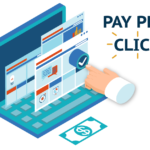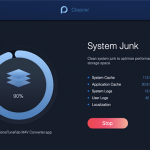Why It’s Important To Have A Debt Collection License
Several businesses start to seek the services of debt collectors, especially when it comes to payment of debts. After all, it’s somewhat frustrating to deal with customers that don’t pay their monetary obligations. And as they don’t have luck in collecting their unpaid bills, they work with debt buyers, attorneys for debt collections, and collection agencies.
If you want to venture into the debt collection industry, having a license is exceptionally essential. Here’s what you need to know about debt collection as well as the reasons why it’s crucial to have a debt collection license.
What is Debt Collection?

For better understanding, a debt collection is a process whereby the financial account is sent to a third-party debt collection. Mostly, debt collectors are companies and professionals who are tasked to collect unpaid debts on behalf of somebody else. In debt collection, the original company which handles the debt of a person assign or sell the financial account to the agency after they deliberately miss payments.
Below is the debt collection process everyone should keep in mind:
- During the first six months of the delinquency, the debtor will have to deal with the creditor for the payment of debts. Here, no intermediary is involved, and it can be the best time for the debtor to settle their accounts.
- Once the debtor fails to pay, and the creditor decides not to pursue them, the account will be assigned to a third-party agency. At this point, the debtor still owns the debt. If the collection agency can recover the debt, it’ll receive a commission from the creditor.
- In the third stage, the original creditor has decided to give up on the debt, so they’ll sell it to the collection agency, which is also known as the debt buyer. Here, the collection agency will be the one to go after the debt to earn a profit from its purchase.
This setup is typically less costly than spending their own financial resources going after the delinquent accounts. However, even if the debt collectors are legally authorized to convince debtors to pay their obligations, they are still limited to the methods employed by the Fair Debt Collection Practices Act.
Under the FDCPA, below are the rules and regulations that every debt collector should keep in mind:
- Limitation on the times of day the debt collectors can reach you.
- Prohibition against the use of insults, obscenities, threats, and slurs.
- Prohibition against discussion of debt with the debtor’s family, employer, friends, or neighbors.
- Requirement for verification of all obligations and collection procedures.
If you violate any of the debtor’s rights under the FDCPA, then you can be sued in court. Due to some legal issues, most states require collection agencies to be licensed in performing debt collections within their borders.

Why Should You Have A Debt Collection License?
Again, most collection agencies should work following state laws, and they should also comply with the FDCPA to keep their license. But, before that, let’s first discuss why it’s essential to have a debt collection license:
1. Legal Protection and Federal Compliance
Nowadays, many laws have governed the International debt collection industry, and in turn, customers are well-informed about their rights. If you violate their rights during a debt collection process, you can be sued in court. Therefore, it’s essential to get a debt collection license, which is a requirement before you can operate as a collection agency. If you have a license, you can perform the process of collecting debts legally. Plus, you’ll be knowledgeable with the federal collection laws of your state. Having a debt collection license can minimize the legal risks involved in attempting to collect debts.
Moreover, if you apply for debt collection licensing, you’re required to comply with the standards provided by the Fair Debt Collection Practices Act. The law ensures that you’re compliant with all the rules and regulations about debt collection.
You don’t want to face legal issues when collecting in a state where you’re not licensed. So, to make your work easier and risk-free, contact a license provider now and learn more about how they can help you with your debt collection license application.
2. Legitimacy of the Organization
If you’re planning to run a debt collection agency, having a license is an essential factor to establish the agency’s legitimacy to operate. Generally, some of the licensing requirements for collection agencies are background checks and references. When you apply for a license, you have to be properly organized according to your state laws. It means you’re required to comply with some paperwork as part of the licensing process. You also need to disclose the identity of all the members to make the investigation faster and provide references to know if the agency operates with fairness on behalf of the clients.
Given these licensing requirements and your compliance therewith, the legitimacy of your organization will be likewise established.
3. Increased Reputation
Almost all states require collection agencies to have bonding insurance before they can get a license. By being bonded, it means that creditors who hire debt collection agencies have protection against loss caused by the incompetence of the former. Ultimately, the protection against loss that a creditor can get makes the collection agency more trustworthy. If many will see you as a reliable partner for debt collection, you’ll get more customers and thereby increase your chances of business success.
4. Guaranteed Knowledge and Ease of Dealing
Again, respected No win No fee Debt Collection agencies are also licensed. In addition to federal compliance, those who apply for a debt collection license should have adequate knowledge about the ethical and fair debt collection. They know how to deal with debtors when they find them without violating any rules set forth by FDCPA. Moreover, licensed collectors are knowledgeable about the legal options available to them and the creditors once the debtors don’t settle their accounts. They use the best techniques to ensure successful debt recovery from the debtors.
Hence, if you have a license and you’re equipped with proper knowledge, it’d be easy for you to convince debtors to pay and to get out of their debts.
Final Thoughts
In the past, anyone can become a debt collector without being registered or licensed. But, today, the debt collection industry is protected by state rules and regulations such as FDCPA for the benefit of the parties involved. With an active debt collection license in place, collection agencies can coerce problem debtors to pay without having to face legal issues.
To wrap it up, we hope you find this article useful if you have plans of getting a debt collection license in your state. Before you get started, research on your state laws to guide you with the overall process.
















